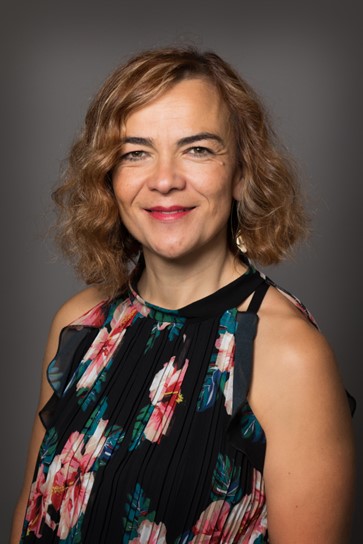Irene Georgakoudi ’96M (MS), ’99M (PhD)
 A professor in the biomedical engineering department and cell, molecular, and developmental biology program at Tufts University, Dr. Irene Georgakoudi has over 20 years of experience in biomedical engineering.
A professor in the biomedical engineering department and cell, molecular, and developmental biology program at Tufts University, Dr. Irene Georgakoudi has over 20 years of experience in biomedical engineering.
Georgakoudi received her bachelor of arts in physics from Dartmouth College, and her master of science and PhD in biophysics from the University of Rochester. She completed postdoctoral work at the Massachusetts Institute of Technology George R. Harrison Spectroscopy Laboratory and the Wellman Center for Photomedicine at Massachusetts General Hospital.
At Tufts, Georgakoudi’s lab focuses on the development of new and improved methods that basically bring the microscope to the patient or specimen of interest to assess different aspects of normal and diseased development of human tissues. These methods rely on light interactions with endogenous chromophores (such as NADH and collagen) and are non-invasive. She is particularly interested in the development of quantitative methods to assess, non-invasively, cell metabolism and matrix organization features in tissues. The core application areas of research in the lab include cancer diagnostics, adipose tissue function, osteoarthritis, cardiovascular, and neurodegenerative diseases.
Georgakoudi serves on the scientific advisory boards for Shriners Hospital for Children in Boston, MA; the P41 Center for Biomedical OCT Research at Massachusetts General Hospital in Boston, MA; and the Biomedical Engineering Institute in École Polytechnique, France. She is a fellow of the American Institute of Medical and Biological Engineering, Optica, and International Society for Optics and Photonics.
Among her many awards, Georgakoudi has received the National Research Service Award from the National Institutes of Health, the Claflin Distinguished Scholar Award from Massachusetts General Hospital, and the National Science Foundation Career Award for her work in non-invasive modalities for optical imaging of cell-matrix interactions in engineered tissues. Additionally, she received the American Cancer Society Research Scholar Grant which supports investigator-initiated projects across the cancer research continuum. She is associate editor for the journal Optica and has published over 100 peer-reviewed manuscripts and book chapters. Additionally, she has served as the program chair, co-chair, or session chair of over 25 international conferences in biomedical optics.